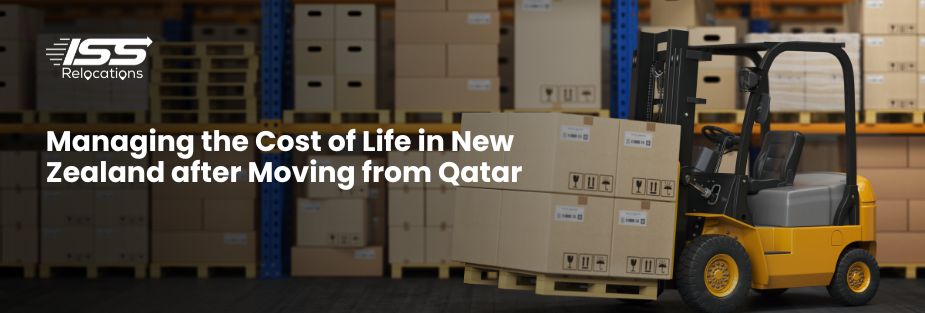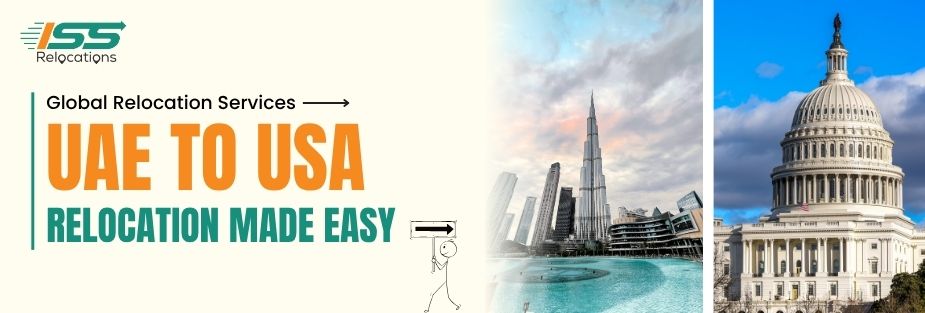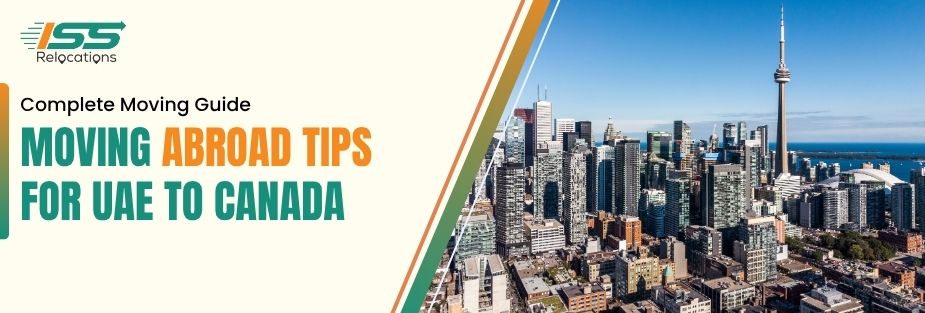
Managing the Cost of Life in New Zealand after Moving from Qatar
New Zealand is a dream destination for many, known for its breathtaking landscapes, high quality of life, and welcoming culture. For individuals moving from Qatar, adjusting to a new lifestyle involves understanding the Cost of Life in New Zealand. From housing and food to transportation and healthcare, preparing for these expenses can make your relocation smoother and more financially secure.
While Qatar offers a tax-free income and a relatively affordable cost structure for residents, New Zealand’s economy operates differently, with higher living costs but robust public services. By diving into the specific aspects of the cost of life in New Zealand, you can make informed decisions and plan your move effectively. ISS Relocations is here to support you at every step, ensuring a seamless transition to your new home.
Understanding the Cost of Life in New Zealand
The cost of life in New Zealand varies depending on factors such as location, lifestyle choices, and family size. For new residents, adapting to these expenses is crucial to avoid financial strain. Below, we explore the fundamental elements of living costs to help you gain clarity on what to expect.
Overview of Living Expenses in New Zealand
New Zealand is often ranked as one of the most desirable places to live, but it is also known for its relatively high living expenses. Essential costs such as housing, groceries, and transportation account for a significant portion of monthly budgets.
For example, housing alone can consume 30-40% of your income, depending on whether you rent or own a property. Food and grocery prices are also notable due to New Zealand’s reliance on imported goods. Transportation costs, though moderate in some areas, can rise for those relying on private vehicles. Understanding these factors will help you estimate the cost of life in New Zealand and budget accordingly.
Key Differences Between Qatar and New Zealand
The cost of life in New Zealand differs significantly from Qatar due to variations in taxation, lifestyle, and housing availability. While Qatar offers tax-free income and lower utility costs, New Zealand’s residents pay taxes that contribute to high-quality public services such as healthcare and education.
Housing in New Zealand tends to be more expensive, especially in urban areas like Auckland and Wellington. Meanwhile, utilities, including electricity and water, are priced higher in New Zealand due to the country’s renewable energy reliance and infrastructure costs. These distinctions highlight the importance of understanding the financial shift when relocating from Qatar to New Zealand.
Start Your New Zealand
Move from Qatar and enjoy a smooth, well-planned lifestyle in NZ
Housing Costs in New Zealand
Housing is one of the largest contributors to the overall cost of life in New Zealand, and it varies significantly depending on your location and preferences. Whether you choose to rent or purchase property, being aware of average costs and available options is essential for effective planning.
Rental Market Overview
In New Zealand, renting is the most common option for new residents. Rental prices vary widely across cities, with Auckland being the most expensive. For instance, a one-bedroom apartment in the city center may cost around NZD 2,500 per month, whereas a similar property in a suburban area might cost closer to NZD 1,800.
For families or larger households, renting a three-bedroom home in suburban areas is a practical choice, though it may cost between NZD 3,500 and NZD 4,500 per month in popular cities. Rent prices outside major metropolitan regions are typically more affordable, offering a budget-friendly alternative.
Tips for Reducing Housing Expenses
To manage the cost of life in New Zealand effectively, consider exploring shared housing options, especially in expensive areas. Flat-sharing is a common practice that significantly reduces rent and utility expenses. Additionally, choosing suburban or rural locations can provide more affordable housing options while still offering proximity to major urban centers.
Some expats also benefit from government-supported housing programs, which can make housing costs more manageable. These programs, however, may have eligibility criteria based on residency status or income levels. Being proactive and researching these opportunities can save you substantial amounts in housing expenses.
Food and Grocery Expenses
Food and groceries are a critical part of budgeting for the cost of life in New Zealand. New Zealand offers a mix of imported and locally sourced goods, and your grocery expenses will depend largely on your shopping habits and dietary preferences. Dining out also adds to your monthly spending, particularly if you frequent restaurants in urban areas.
Grocery Shopping in New Zealand
When it comes to groceries, the cost of life in New Zealand can be higher than in Qatar due to the country’s reliance on imports. Essential items such as dairy, meat, and produce are available locally, but imported products can significantly increase your grocery bill. On average, a single person may spend between NZD 500 and NZD 700 per month on groceries, while a family of four can expect costs upwards of NZD 1,000 per month.
Shopping at farmers’ markets or buying in bulk can help you manage expenses. Seasonal produce is often more affordable than imported goods. However, imported staples like rice or spices, common in Middle Eastern diets, may cost more due to shipping and tariffs. Understanding these factors helps you adjust your food budget to suit the cost of life in New Zealand.
Dining Out in New Zealand
Dining out in New Zealand can be a treat but may strain your budget if done frequently. A meal at a mid-range restaurant costs approximately NZD 25–35 per person, while fast food options may be slightly cheaper at around NZD 12–15 per meal.
For coffee lovers, café culture is vibrant in New Zealand, with a cup of coffee costing between NZD 4 and NZD 6. While dining out may be more expensive than in Qatar, exploring affordable options like local food trucks or takeaway meals can help reduce costs without sacrificing variety or quality. Adjusting your dining habits is an essential step in managing the cost of life in New Zealand effectively.
Transportation Costs
Transportation is another important consideration when evaluating the cost of life in New Zealand. Depending on your location and travel needs, you can choose between public transport and owning a private vehicle, each with its own financial implications.
Public Transport Options
New Zealand has a well-developed public transportation system in major cities such as Auckland and Wellington. Public buses, trains, and ferries offer reliable and affordable ways to commute. Monthly transport passes typically range from NZD 140 to NZD 200, depending on the city and distance traveled.
For residents living in rural or suburban areas, public transport may be less accessible, requiring alternative travel solutions. Using public transport wherever possible not only helps reduce your environmental footprint but also makes the cost of life in New Zealand more manageable.
Owning a Vehicle in New Zealand
Owning a car in New Zealand provides flexibility, especially for those living outside major cities. However, it comes with significant costs, including purchasing a vehicle, registration fees, maintenance, and fuel expenses. A reliable used car may cost between NZD 5,000 and NZD 10,000, while newer models can exceed NZD 30,000.
Fuel prices in New Zealand fluctuate but generally average around NZD 2.70 per liter, which can add up for long commutes. Vehicle maintenance, insurance, and parking fees also contribute to the overall cost of life in New Zealand. Carefully evaluating your transportation needs will help you determine whether owning a car is a practical choice.
Healthcare and Insurance in New Zealand
Healthcare is a vital aspect to consider when planning for the cost of life in New Zealand. The country offers a publicly funded healthcare system that provides quality care, but private insurance is often recommended for faster access to non-urgent treatments.
Public Healthcare System Overview
New Zealand’s public healthcare system is funded through taxes, offering subsidized or free services to residents and certain visa holders. General Practitioner (GP) visits may cost around NZD 50–80 for non-subsidized patients, while emergency care in public hospitals is often free of charge. However, long waiting times for non-urgent procedures can be a challenge.
For expats moving from Qatar, the reliance on public healthcare may initially feel different. Unlike Qatar, where private healthcare services are widely used, understanding the structure of New Zealand’s public system is key to budgeting appropriately for the cost of life in New Zealand.
Private Healthcare Costs
Many expats and residents choose private health insurance to complement the public system. Private insurance costs vary depending on coverage, with monthly premiums ranging from NZD 100 to NZD 300 per person. Private healthcare ensures faster access to specialists and elective procedures, reducing waiting times significantly.
Prescription medications in New Zealand are partially subsidized under the public healthcare system, often costing around NZD 5–15 per item. For non-subsidized prescriptions, costs can be higher. Accounting for private insurance and medication costs is critical to understanding the overall cost of life in New Zealand.
Miscellaneous Expenses
Miscellaneous expenses are often overlooked but can significantly impact the overall cost of life in New Zealand. From utilities and internet to leisure activities and entertainment, these costs vary based on individual preferences and lifestyle choices.
Entertainment and Leisure
New Zealand is known for its vibrant entertainment options and outdoor activities, but these come at a price. A movie ticket, for instance, costs approximately NZD 15–20, while gym memberships can range between NZD 50 and NZD 100 per month.
For those who enjoy exploring the outdoors, many parks and hiking trails are free, but organized activities such as guided tours or extreme sports can cost anywhere from NZD 100 to NZD 300 per experience. While entertainment costs in New Zealand can add up, taking advantage of free or low-cost activities can help balance the overall cost of life in New Zealand.
Utilities and Internet
Utilities are another crucial component of the cost of life in New Zealand. Monthly electricity bills typically range from NZD 120 to NZD 200, depending on household size and energy consumption. Water usage is often included in rent but may cost NZD 40–60 per month if billed separately.
High-speed internet, an essential for most households, costs around NZD 80–120 per month. While these expenses are generally higher compared to Qatar, adopting energy-efficient practices and selecting the right service providers can help manage these costs effectively. Understanding utility and entertainment expenses is key to gaining a clear picture of the cost of life in New Zealand.
Call Now for Expert Help!
How to Budget for Your New Life in New Zealand
Budgeting effectively is one of the best ways to manage the cost of life in New Zealand. By understanding your monthly expenses and finding ways to optimize spending, you can enjoy a comfortable lifestyle without financial stress.
Tips for Managing Expenses Efficiently
To manage the cost of life in New Zealand, it’s essential to track your expenses and prioritize needs over wants. For instance, creating a detailed monthly budget can help you identify areas where you might be overspending, such as dining out or entertainment.
Adopting a minimalist lifestyle can also reduce overall costs. For example, buying seasonal produce and cooking at home can significantly lower grocery expenses. Similarly, relying on public transport instead of owning a car can help you save on fuel and maintenance costs. Being mindful of these practices can have a noticeable impact on the cost of life in New Zealand.
Using Relocation Services for a Seamless Transition
Relocation services, like those provided by ISS Relocations, play a crucial role in easing the financial and logistical challenges of moving abroad. With ISS, you receive expert guidance on housing, budgeting, and essential services to help you adapt to the cost of life in New Zealand more efficiently.
ISS Relocations also offers support with shipping, storage, and settling-in services, ensuring a smooth transition to your new life. By leveraging such services, you can focus on settling into your new environment without worrying about unexpected expenses or logistical hurdles.
Wrapping Up
Understanding and managing the cost of life in New Zealand is crucial for a smooth transition, particularly for individuals moving from Qatar. From housing and groceries to transportation and healthcare, each expense category has its unique considerations that can impact your budget. While New Zealand’s living costs may seem higher compared to Qatar, the country offers an excellent quality of life with access to exceptional public services, natural beauty, and diverse cultural experiences.
Effective financial planning is key to ensuring that the cost of life in New Zealand aligns with your income and lifestyle. Leveraging the expertise of relocation services like ISS Relocations can simplify the process by providing tailored guidance and practical solutions to manage expenses. With the right preparation, you can embrace your new life in New Zealand with confidence, enjoying the opportunities it offers without financial strain.
Plan Stress-free Move with Top Moving Company in UAE - ISS Relocations

Frequently Asked Questions
What is the average monthly cost of living in New Zealand for a single person?
The average monthly cost of living for a single person in New Zealand is typically between NZD 2,000 and NZD 3,000. This includes expenses such as housing, food, transportation, and utilities. However, the exact amount may vary depending on your location and lifestyle.
Is living in New Zealand more expensive than Qatar?
Yes, the cost of life in New Zealand is generally higher than in Qatar, primarily due to differences in taxation, housing costs, and grocery prices. However, New Zealand offers extensive public services, which contribute to a higher quality of life despite the higher expenses.
How much does rent cost in Auckland compared to smaller cities in New Zealand?
In Auckland, rent for a one-bedroom apartment in the city center averages around NZD 2,500 per month. In smaller cities or suburban areas, the cost is significantly lower, with similar properties renting for NZD 1,800 or less.
Are public healthcare services free in New Zealand for expats?
New Zealand’s public healthcare system provides free or subsidized services for residents and certain visa holders. However, non-residents and some expats may need private health insurance to access the full range of services.
What’s the average salary required to live comfortably in New Zealand?
To live comfortably in New Zealand, a single person typically needs an annual salary of at least NZD 60,000–70,000, while a family may require a combined income of NZD 100,000 or more, depending on their location and lifestyle.
How much should I budget for groceries in New Zealand?
A single person should budget around NZD 500–700 per month for groceries, while a family of four may spend between NZD 1,000 and NZD 1,200. Shopping locally and buying seasonal produce can help reduce costs.
Are public transport options affordable and reliable in New Zealand?
Yes, public transport in New Zealand is both affordable and reliable in major cities. Monthly passes range from NZD 140 to NZD 200, providing cost-effective options for commuting. However, in rural areas, access to public transport may be limited.
Moving Company - Recent Blog
Stay informed and prepared for your next move with our latest blogs on moving services in the UAE. From expert packing tips to international relocation guides, ISS Relocations brings you up-to-date insights to make your moving experience smoother, safer, and stress-free.










